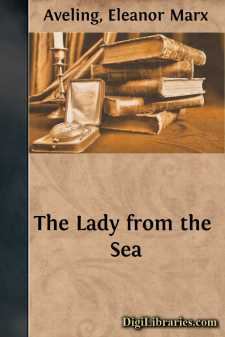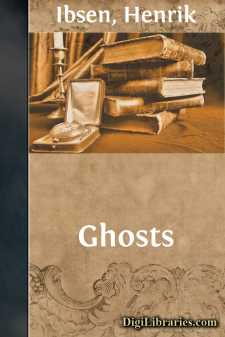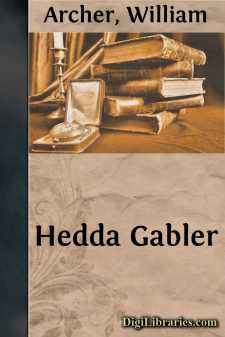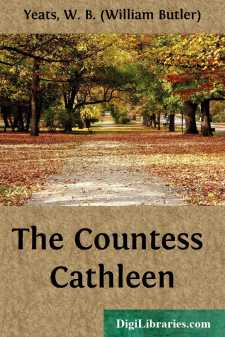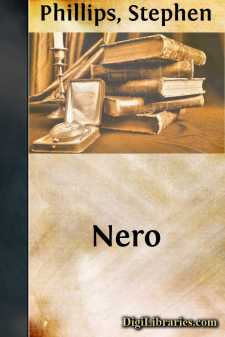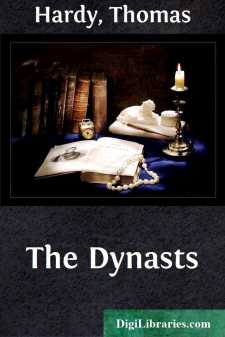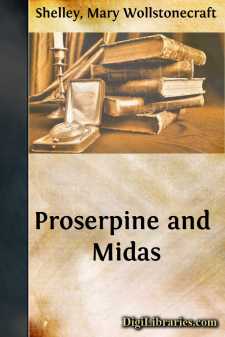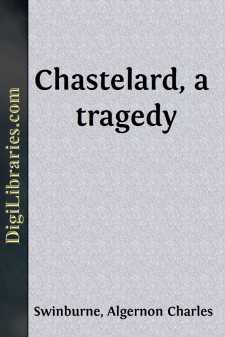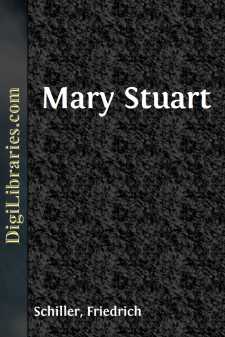Drama Books
Sort by:
THE LADY FROM THE SEA ACT I (SCENE.—DOCTOR WANGEL'S house, with a large verandah garden in front of and around the house. Under the verandah a flagstaff. In the garden an arbour, with table and chairs. Hedge, with small gate at the back. Beyond, a road along the seashore. An avenue of trees along the road. Between the trees are seen the fjord, high mountain ranges and peaks. A warm and...
more...
by:
Henrik Ibsen
ACT I (SCENE.—A large room looking upon a garden door in the left-hand wall, and two in the right. In the middle of the room, a round table with chairs set about it, and books, magazines and newspapers upon it. In the foreground on the left, a window, by which is a small sofa with a work-table in front of it. At the back the room opens into a conservatory rather smaller than the room. From the...
more...
by:
William Archer
From Munich, on June 29, 1890, Ibsen wrote to the Swedish poet, Count Carl Soilsky: "Our intention has all along been to spend the summer in the Tyrol again. But circumstances are against our doing so. I am at present engaged upon a new dramatic work, which for several reasons has made very slow progress, and I do not leave Munich until I can take with me the completed first draft. There is little...
more...
SCENE 1 SCENE—A room with lighted fire, and a door into the open air, through which one sees, perhaps, the trees of a wood, and these trees should be painted in flat colour upon a gold or diapered sky. The walls are of one colour. The scene should have the effect of missal Painting. MARY, a woman of forty years or so, is grinding a quern. MARY. What can have made the grey hen flutter so? (TEIG, a boy...
more...
by:
Stephen Phillips
ACT I SCENE.—The scene is in the Great Hall in the Palace of the Caesars. At the back are steps leading to a platform with balustrade opening on the air, and beyond, a view of the city. [On the right of the stage is a cedarn couch on which CLAUDIUS is uneasily sleeping. On the right is a door communicating with the inner apartments. On the left a door communicating with the outer halls. [XENOPHON is...
more...
by:
Thomas Hardy
The Spectacle here presented in the likeness of a Drama is concerned with the Great Historical Calamity, or Clash of Peoples, artificially brought about some hundred years ago. The choice of such a subject was mainly due to three accidents of locality. It chanced that the writer was familiar with a part of England that lay within hail of the watering-place in which King George the Third had his...
more...
by:
Bernard Shaw
The twelfth of May, 1796, in north Italy, at Tavazzano, on the road from Lodi to Milan. The afternoon sun is blazing serenely over the plains of Lombardy, treating the Alps with respect and the anthills with indulgence, not incommoded by the basking of the swine and oxen in the villages nor hurt by its cool reception in the churches, but fiercely disdainful of two hordes of mischievous insects which...
more...
INTRODUCTION. I. ‘The compositions published in Mrs. Shelley’s lifetime afford but an inadequate conception of the intense sensibility and mental vigour of this extraordinary woman.’ Thus wrote Dr. Garnett, in 1862 (Preface to his Relics of Shelley). The words of praise may have sounded unexpectedly warm at that date. Perhaps the present volume will make the reader more willing to subscribe, or...
more...
SCENE I.—The Upper Chamber in Holyrood. The four MARIES. MARY BEATON (sings):— 1. Le navire Est a l'eau; Entends rire Ce gros flot Que fait luire Et bruire Le vieux sire Aquilo. 2. Dans l'espace Du grand air Le vent passe Comme un fer; Siffle et sonne, Tombe et tonne, Prend et donne A la mer. 3. Vois, la brise Tourne au...
more...
SCENE I. A common apartment in the Castle of Fotheringay. HANNAH KENNEDY, contending violently with PAULET, who is aboutto break open a closet; DRURY with an iron crown. KENNEDY.How now, sir? what fresh outrage have we here?Back from that cabinet! PAULET.Whence came the jewel?I know 'twas from an upper chamber thrown;And you would bribe the gardener with your trinkets.A curse on woman's...
more...


